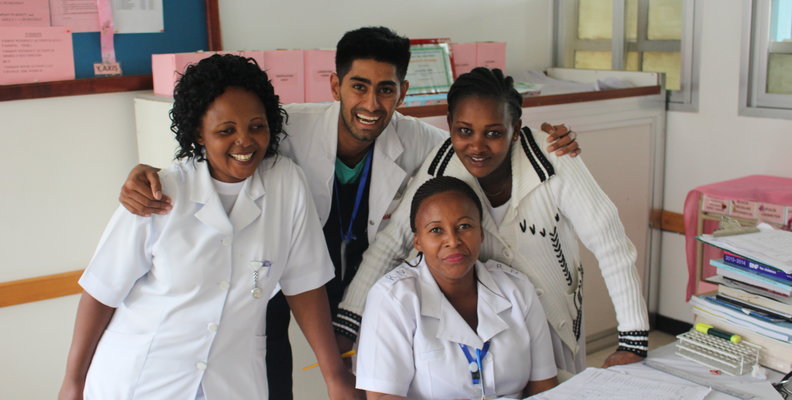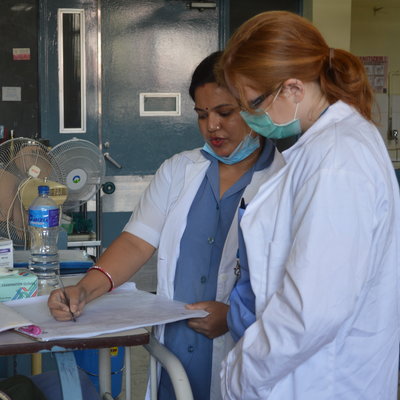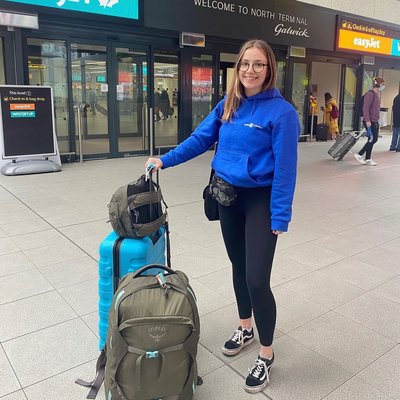You’ve got your elective dates and an idea of where you want to take your passion for healthcare. Now it’s time to organise. Before embarking on an elective abroad, most people go straight to the basics. Why book with an organisation like Work the World? It's easy! Why organise it independently? It was cheap!
If only the process were this simple. In reality, there are many more questions to work through before making the decision – many of which extend further into safety, ethics, and your level of experience than you might first expect. It is worth sitting down and grappling with these questions before confronting them overseas.
GETTING THE RIGHT PLACEMENT
You may have a good idea of what you want to do, but how flexible are you? A student who was intent on experiencing Oncology in Northern Tanzania contacted us, but outside of the capital, the focus on cancer is almost non-existent. In this case, their expectations didn’t align with what was possible.
Another independent student contacted us while in Nepal. She thought she'd arranged a midwifery placement, but the hospital had no space and wanted to move her into another ward. She rang us in the hope that we could step in.
Independent travel: Ensuring that your host hospital and supervisor know what you want to focus on is vital, but keep in mind the effort required to build strong, trusting relationships before you go requires effort, and things may change when you arrive. Miscommunication before departure is common, and it’s not until you arrive and speak to your hosts face-to-face that it can (or sometimes cannot) be resolved. Many students spend the first few days in a tangle of administrative red tape, which can delay or shorten their time in the hospital. This may not happen to you, but being aware of potential complications and being ready to compromise is vital.
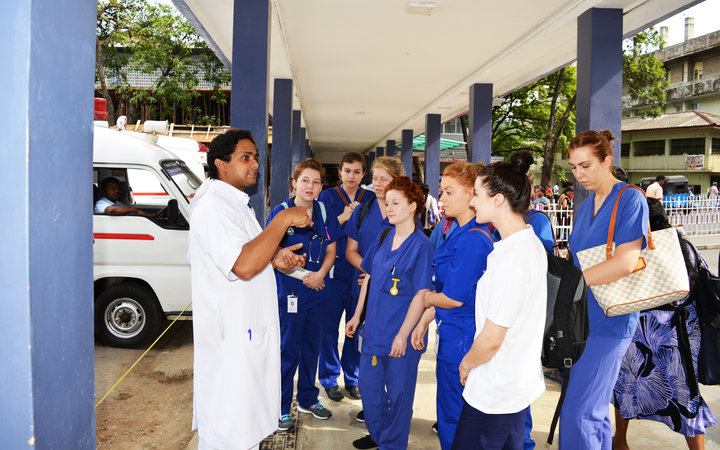
Booking with Work the World: We’ve already spent years building strong relationships with the partner hospitals, clinics and government authorities that we work with, which means we have more flexibility in planning your placement and can tailor it to your skills, abilities, and goals. Once you’ve discussed what you want with our UK office, our in-country staff go into the hospital to plan your elective with hospital staff they know. Contracts are already in place, so you can start immediately. Through these relationships, we found the oncology student above a bespoke placement with the only oncologist in the Lake Victoria region. Newly returning from training in Italy, he was busy setting up a new department, but our in-country staff met with him and requested the elective. Not only did this allow our student to study their chosen field in their ideal destination, but study it from the ground up.
GETTING THE RIGHT SUPERVISOR
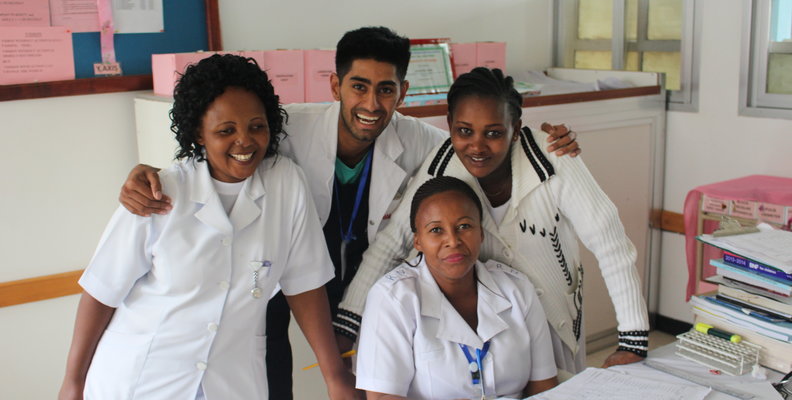
A supervisor can make or break your elective. They have the ability to make it the most amazing learning experience or leave you feeling alienated and removed from the team - something you won't have a lot of control over if you're organising independently. Be aware that some hospitals place the revenue they make from student fees well above patient care and student experience. You may also have a great teacher, but if their time is split between several of you, it can be hard to progress or get through work experience.
Independent travel: Getting recommendations from friends is a start, but if you go to an unfamiliar hospital, there’s not much else you can do before you leave. To avoid finding yourself trailing behind a supervisor in a group of twenty other students, try to find out as much as you can about how your placement will be organised, who your supervisor will be and if they have asked for a fee. This is typical of most hospitals; finding out where this money goes is vital. You should also determine exactly what your placement will involve and how many other medical students will work with you.
Booking with Work the World: We choose our placement supervisors because they provide excellent teaching. In return, students are encouraged to share skills and contribute to an educational experience for everyone involved.
COMMUNICATING YOUR LEVEL OF SKILL
Getting experience in an overseas hospital presents several challenges, the most problematic being the clinical and ethical dilemmas that can arise if supervisors do not adequately understand a student’s skill set. You’re probably familiar with the horror stories circulating in the BMJ online forums about students arriving to find their supervisor heading off for a holiday, thinking their job was being covered while they were away.
Independent travel: If you arrange to work in an overseas hospital independently, be clear when you get in touch about your abilities and goals. Many remote hospitals may not understand how global health elective placements work and that they need to provide supervision.
Booking with Work the World: Our strong relationships with hospitals mean that students don't need to worry about communicating with their supervisor or department. Contracts are in place to guarantee supervision. I don't think you can just sit back and get invited to do things; you still need to build relationships once you’re there and prove your ambition for placement. We'll get you there and support you, but then it's over to you.
ETHICAL ISSUES
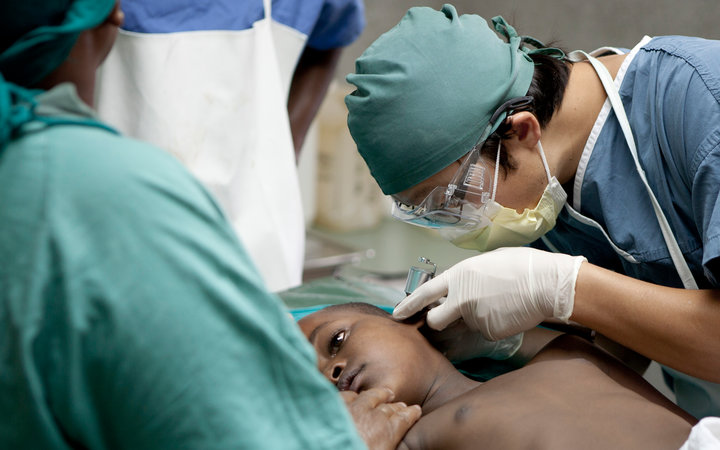
There is a common misconception that people in poverty will benefit from any level of medical care, and stories of independent students ‘trying out’ unfamiliar procedures can be shocking. It is also common for students to ‘forget’ that this is a working hospital that is undoubtedly understaffed. Students must respect guidelines laid out by their university or regulating bodies such as the BMA or the Medical Journal of Australia (MJA).
Independent travel: To ensure you do not demand too much of your supervisors' time and take them away from their patients, you must put the work in beforehand. Research likely diseases and problems, learn some of the local language... All of these will help you fit in. After this, it's up to you to follow guidelines and treat these patients as you would at home. You need to speak up if you don't feel comfortable doing something.
Booking with Work the World: We work closely with the regulatory bodies to ensure the impact on our host hospitals, clinics, and, most importantly, the patients is positive. Placements are planned so students understand their roles and supervisors are fully briefed on skill sets. The result is a mentorship programme that does not impact patient care but provides a learning experience by delivering the best medical treatment available. In short, we do the preparation work for you and will brief you on what you need to know.
SAFETY AND SECURITY
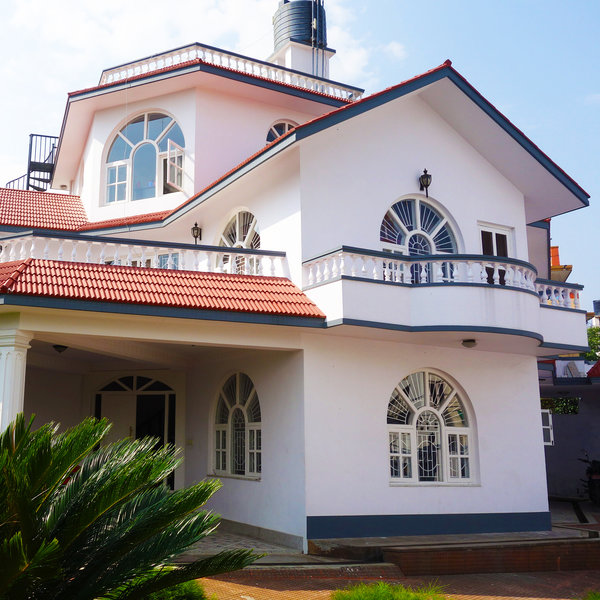
Travelling abroad does bring risks, and working in a developing country increases those potential problems. What happens if something goes wrong? Will you have a support network out there?
Independent travel: You should make sure you take all the relevant contact numbers to get in touch with the embassy or a hospital should you need them. You should also look at reviews before booking accommodation and follow relevant guidelines on staying safe in your host country.
Booking with Work the World: One of the big additional benefits of our placements is the Work the World houses. Set in safe neighbourhoods and staffed by knowledgeable locals, they provide safe, secure and social housing for all our students. Our feedback often reveals that houses are one of the highlights for students. A comfortable home, amazing staff and delicious meals - and friends to chat with and plan weekend trips - are always waiting after a day on placement, and shouldn’t be underestimated. Our staff are always on hand in the unlikely occasion that things go wrong, whether that is during your placement or whilst living in their country.
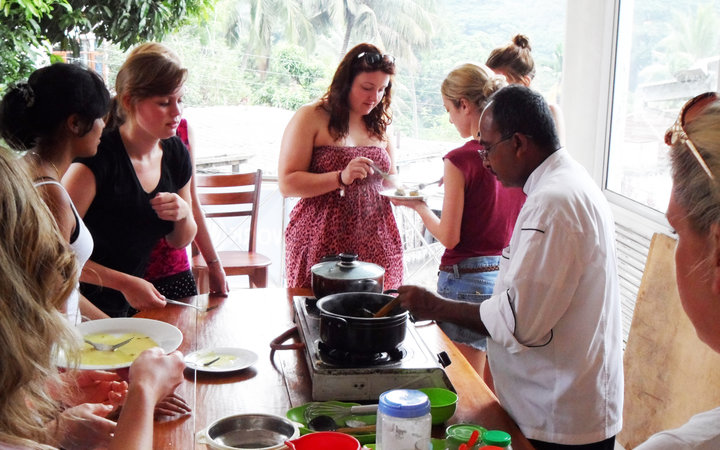
WHAT DOES THIS MEAN FOR ME?
That’s up to you to decide, and although it’s not a decision to take lightly, that doesn’t mean you have to make it alone. Talk it through with past students, teachers on your course, professionals, friends, and parents to better understand which option might best suit your character, ambitions, experience, and budget.
Our UK-based staff team are also on hand to answer any questions you might have, and we’re more than happy to put you in contact with students who have previously travelled with us. You can read reviews from many of them here. You can also read more about our elective placements abroad.
